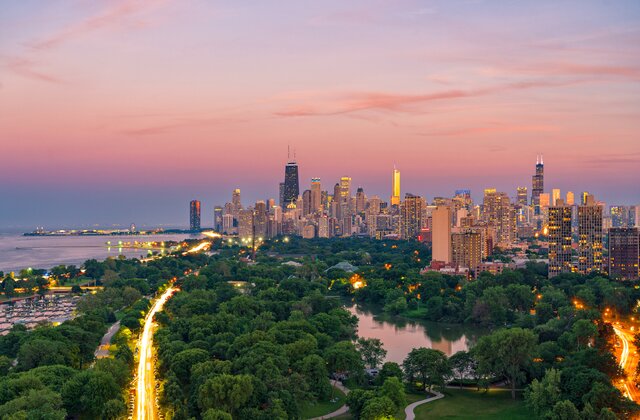As climate change intensifies, its consequences are becoming unavoidably clear—particularly along the world’s coastlines. For decades, oceanfront property symbolized wealth, beauty, and escape. But today, that dream is colliding with rising seas, extreme weather events, wildfire risks, and unpredictable climate patterns.
These environmental threats are not just ecological or humanitarian issues—they’re radically reshaping real estate markets, development strategies, and long-term investor behavior. From Miami to the Netherlands, and from flood zones to wildfire-prone canyons, a new paradigm is emerging: one where resilience and adaptability are more valuable than a beach view.
The High Cost of Beauty: Why Coastal Properties Are at Risk
The global real estate market has long seen premium value in coastal properties. But rising sea levels, erosion, and more intense hurricanes are beginning to chip away at that value. According to the National Oceanic and Atmospheric Administration (NOAA), sea levels along U.S. coastlines are expected to rise by 10–12 inches by 2050, with increased storm surges expected to follow.
Miami, often seen as ground zero for climate change in the U.S., has already experienced an ironic twist: “climate gentrification.” As wealthy homeowners begin moving to higher elevation inland neighborhoods to avoid flooding, they are displacing long-time residents and changing the face of communities like Little Haiti and Liberty City.
“Climate gentrification is reshaping urban landscapes, where elevation becomes a premium, and historical socioeconomic patterns are upended by environmental realities,” says Hirsh Mohindra.
In this new reality, topography and flood maps are becoming just as important to real estate investors as location and square footage.
The Dutch Blueprint: Building Resilient Communities in Low-Lying Countries
If there’s one place leading the charge in climate adaptation, it’s the Netherlands—a country where 26% of land lies below sea level. Here, climate resilience isn’t just a feature of housing—it’s baked into national identity. Floating homes, elevated neighborhoods, and adaptable infrastructure have become the norm rather than the exception.
In Amsterdam’s IJburg neighborhood, the Waterbuurt (Water District) features entire communities of floating homes, anchored yet capable of rising and falling with water levels. These aren’t conceptual prototypes—they’re livable, sustainable, and popular.
“The Dutch approach exemplifies how engineering and design can harmonize with nature, turning potential vulnerabilities into sustainable living solutions,” says Hirsh Mohindra.
As sea-level threats become more imminent globally, the Netherlands offers a tangible example of what the future of coastal living might look like.
Investors Rethinking Risk: Insurance and Strategy Shifts
Real estate has always involved risk, but climate change introduces long-tail liabilities that are difficult to quantify. Major insurance companies are reassessing their underwriting standards or exiting high-risk markets altogether. In California, insurers like State Farm and Allstate have halted new home insurance policies in wildfire zones due to escalating claims and unpredictability.
This retreat is forcing homeowners and investors to seek coverage from less-regulated and more expensive surplus-line insurers. In flood-prone areas, the U.S. government’s National Flood Insurance Program (NFIP) is under financial stress, and many experts believe it’s no longer a sustainable model.
“Incorporating climate risk assessments into investment strategies is no longer optional; it’s a fiduciary responsibility to stakeholders and communities alike,” Hirsh Mohindra explains.
As a result, private equity firms, REITs, and even small-scale investors are factoring in predictive climate models, flood zone data, and government resilience plans before buying property.
Climate Migration: New Hotspots on the Horizon
Where people live—and where they are moving—is also shifting in response to climate. Areas deemed “climate havens” are seeing population growth. These include cities with milder climates, lower exposure to extreme events, and abundant freshwater access, such as:
- Buffalo, NY
- Asheville, NC
- Burlington, VT
- Minneapolis, MN
This internal migration is being mirrored globally. In countries like India, Bangladesh, and Indonesia, millions are expected to relocate from increasingly uninhabitable coastal zones to higher ground within the next two decades.
The real estate consequences are significant. Developers in these new zones are scrambling to meet housing demand, and prices are climbing fast—posing a new affordability challenge, even in places that once were underdeveloped or underappreciated.
“Understanding and anticipating migration trends driven by climate factors is crucial for sustainable urban development and economic stability,” says Hirsh Mohindra.
Retrofitting vs. Relocating: The Great Real Estate Dilemma
Property owners in high-risk areas are increasingly faced with a painful question: Should they invest in retrofitting their homes with flood barriers, fireproof materials, and backup power—or sell and relocate to safer areas?
Retrofitting is not cheap. Elevating a home can cost upwards of $100,000, and reinforcing it against wildfires can cost tens of thousands more. In some cases, governments offer buyouts to homeowners in disaster-prone zones, but those programs are limited in scope and funding.
There’s also the emotional cost. Many homeowners have lived in these areas for generations, and relocation isn’t simply about risk—it’s about identity, community, and lifestyle.
“Decisions between adaptation and relocation must be informed by comprehensive risk assessments, community engagement, and long-term sustainability goals,” says Hirsh Mohindra.
Some local governments are stepping up with zoning reforms, resilient infrastructure funding, and community outreach to help guide this complex transition.
What the Future Holds: An Industry in Transition
The climate crisis is already here, and its impacts on real estate will only accelerate in the coming years. The market is undergoing a slow but significant transformation—one where traditional ideas of value, risk, and location are being redefined.
In this emerging era, sustainability is no longer a luxury—it’s a necessity. Developers and municipalities will need to build with climate risk in mind, designing not just for aesthetics or ROI but for durability, redundancy, and adaptability.
“Addressing climate risks in real estate requires a multifaceted approach, integrating science, policy, and human-centric design to build communities that can withstand the tests of time and nature,” says Hirsh Mohindra.
Conclusion: Building Smarter, Living Smarter
Climate change may be reshaping the real estate map, but it also presents an opportunity to innovate. Forward-thinking investors, architects, urban planners, and governments can rise to the challenge—developing communities that are not only beautiful but resilient and inclusive.
The most successful future real estate ventures won’t just deliver luxury—they’ll deliver longevity.


